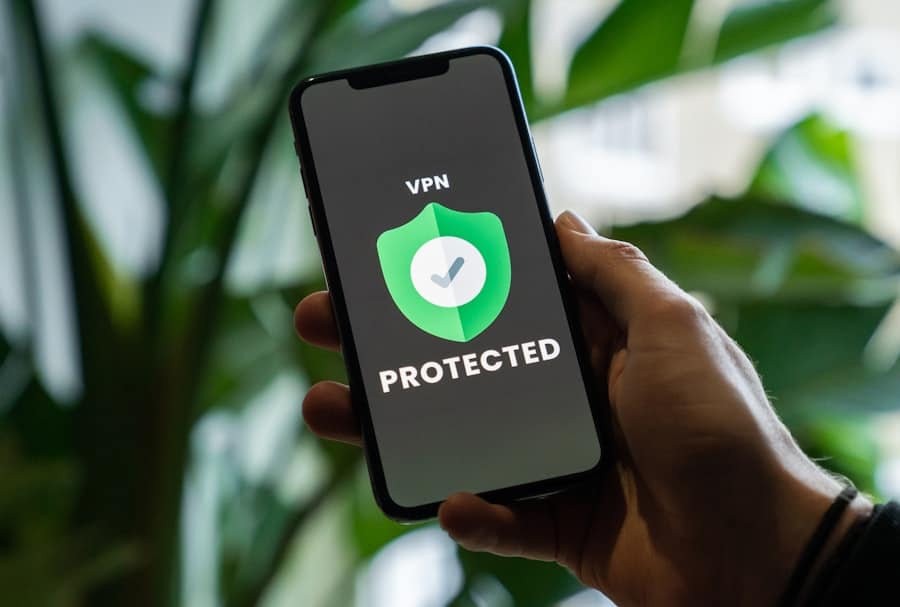The rollout of 5G technology marks a significant leap forward in telecommunications, promising unprecedented speeds, lower latency, and the ability to connect a vast number of devices simultaneously. As the fifth generation of mobile networks, 5G is designed to support the burgeoning Internet of Things (IoT), enabling everything from smart homes to autonomous vehicles. The expansion of 5G is not merely a technological upgrade; it represents a fundamental shift in how we interact with the digital world.
With its enhanced capabilities, 5G is set to revolutionize industries, improve healthcare delivery, and transform urban infrastructure. However, this rapid expansion comes with its own set of challenges, particularly concerning data privacy. As more devices become interconnected and reliant on 5G networks, the volume of data generated and transmitted will increase exponentially.
This surge in data flow raises critical questions about how personal information is collected, stored, and protected. The implications of 5G expansion extend beyond mere convenience; they touch on fundamental rights and the ethical responsibilities of corporations and governments in safeguarding user data. As we delve deeper into the intricacies of 5G technology, it becomes imperative to examine the importance of data privacy in this new landscape.
Key Takeaways
- 5G expansion offers faster connectivity but raises significant data privacy concerns.
- Enhanced network complexity increases vulnerabilities to cyberattacks and data breaches.
- Personal data faces greater risks due to more extensive data collection and transmission.
- National security is threatened by potential exploitation of 5G infrastructure by malicious actors.
- Regulatory and ethical frameworks are essential to protect privacy and ensure responsible 5G deployment.
The Importance of Data Privacy
Data privacy has emerged as a cornerstone of digital rights in an era where personal information is often treated as a commodity.
The sheer volume of data that will be transmitted over these networks includes sensitive information such as health records, financial transactions, and personal communications.
The importance of protecting this data cannot be overstated; breaches can lead to identity theft, financial loss, and a profound erosion of trust in digital systems. Moreover, data privacy is not just a personal concern; it has broader societal implications. When individuals feel that their data is not secure, they may hesitate to engage with digital services or share information that could enhance their experiences.
This reluctance can stifle innovation and hinder the development of new technologies that rely on data-driven insights. In a world increasingly dependent on connectivity, ensuring robust data privacy measures is essential for fostering a healthy digital ecosystem where users can interact confidently and securely.
Increased Vulnerability in 5G Networks

While 5G networks promise enhanced performance and connectivity, they also introduce new vulnerabilities that can be exploited by malicious actors. The architecture of 5G is fundamentally different from its predecessors, relying heavily on software-defined networking (SDN) and network function virtualization (NFV). These technologies offer flexibility and scalability but also create potential entry points for cyberattacks.
Additionally, the proliferation of IoT devices connected to 5G networks exacerbates these vulnerabilities. Many IoT devices are designed with minimal security features due to cost constraints or lack of industry standards.
As these devices become integral to everyday life—controlling everything from home security systems to medical devices—the risk associated with their exploitation grows significantly. A compromised IoT device could serve as a gateway for attackers to infiltrate larger networks, leading to widespread data breaches and service disruptions.
Potential Risks to Personal Data
The risks to personal data in a 5G environment are multifaceted and complex. One significant concern is the potential for unauthorized access to sensitive information. As more devices connect to 5G networks, the likelihood of data interception increases.
For example, if an individual uses a smart health monitor that transmits real-time health data over a 5G network, an attacker could intercept this information if proper encryption measures are not in place. Such breaches could expose individuals’ health conditions or habits, leading to discrimination or stigmatization. Moreover, the aggregation of data from various sources poses additional risks.
With 5G enabling seamless communication between devices, vast amounts of personal information can be collected and analyzed by corporations or third parties. This data aggregation can lead to profiling and targeted advertising that many users may find intrusive or manipulative. Furthermore, without stringent regulations governing how this data is used and shared, individuals may have little recourse if their information is mishandled or exploited for profit.
Impact on National Security
The implications of 5G expansion extend beyond individual privacy concerns; they also pose significant risks to national security. As countries race to deploy 5G infrastructure, the potential for espionage and cyber warfare increases dramatically. State-sponsored actors may exploit vulnerabilities in 5G networks to conduct surveillance or disrupt critical services.
For instance, if an adversarial nation were to compromise a country’s telecommunications infrastructure, it could cripple emergency services or disrupt communication during a crisis. Furthermore, the reliance on foreign technology providers for 5G infrastructure raises additional security concerns. Many nations are wary of using equipment from certain manufacturers due to fears of backdoors that could allow unauthorized access to sensitive information.
This geopolitical dimension complicates the landscape of 5G deployment, as countries must balance technological advancement with the need for robust security measures. The intersection of technology and national security underscores the urgency of addressing vulnerabilities within 5G networks.
Regulatory Measures for Data Privacy

In response to the growing concerns surrounding data privacy in the context of 5G expansion, regulatory measures are being developed and implemented worldwide. Governments are recognizing the need for comprehensive frameworks that protect individuals’ rights while fostering innovation in telecommunications. For instance, the European Union’s General Data Protection Regulation (GDPR) sets stringent guidelines for how personal data must be handled, emphasizing transparency and user consent.
In addition to existing regulations like GDPR, new policies specifically addressing the unique challenges posed by 5G are emerging. These may include requirements for enhanced encryption standards, mandatory security assessments for IoT devices, and protocols for incident reporting in case of data breaches. By establishing clear guidelines for data handling and security practices within 5G networks, regulators can help mitigate risks and ensure that user privacy remains a priority as technology evolves.
Ethical Considerations in 5G Expansion
The ethical implications of 5G expansion are profound and multifaceted. As technology continues to advance at an unprecedented pace, stakeholders must grapple with questions about responsibility and accountability in data management. Corporations developing 5G infrastructure and services have an ethical obligation to prioritize user privacy and implement robust security measures.
This responsibility extends beyond mere compliance with regulations; it encompasses a commitment to ethical practices that respect individuals’ rights. Moreover, there is an ethical imperative to ensure equitable access to 5G technology. As this new generation of connectivity rolls out, disparities in access could exacerbate existing inequalities in society.
Marginalized communities may find themselves further disadvantaged if they lack access to reliable 5G networks or the devices necessary to benefit from them. Addressing these ethical considerations requires collaboration among governments, private sector entities, and civil society organizations to create inclusive policies that promote equitable access while safeguarding data privacy.
Safeguarding Data Privacy in 5G Expansion
As we navigate the complexities of 5G expansion, safeguarding data privacy emerges as a critical priority that cannot be overlooked. The potential benefits of this technology are immense; however, they must be balanced against the risks posed by increased connectivity and data flow. By prioritizing robust regulatory measures, ethical considerations, and proactive security practices, stakeholders can work together to create an environment where innovation thrives without compromising individual rights.
The journey toward a secure 5G future requires vigilance and collaboration among all parties involved—governments must enact effective regulations; corporations must adopt ethical practices; and individuals must remain informed about their rights and responsibilities in this new digital landscape. Only through collective efforts can we ensure that the promise of 5G technology is realized while protecting the fundamental principles of data privacy that underpin our digital lives.
As the expansion of 5G technology continues to reshape our digital landscape, the importance of data privacy cannot be overstated. In light of this, it’s essential to consider how new devices, such as the Google Pixel phone, are designed with user privacy in mind. For a deeper understanding of the unique features that set the Google Pixel apart, including its approach to data security, you can read more in this article: What Makes the Google Pixel Phone Different?.
FAQs
What is 5G technology?
5G is the fifth generation of wireless communication technology, designed to provide faster speeds, lower latency, and greater connectivity compared to previous generations like 4G.
Why is data privacy a concern with 5G expansion?
5G networks handle significantly more data and connect a vast number of devices, increasing the risk of data breaches, unauthorized access, and surveillance if privacy protections are not adequately implemented.
How does 5G impact data security compared to previous networks?
While 5G offers enhanced security features, its increased complexity and the sheer volume of connected devices create new vulnerabilities that require robust data privacy measures.
What types of data are at risk in 5G networks?
Personal information, location data, communication content, and device usage patterns are among the types of data that can be exposed if 5G networks are not properly secured.
Who is responsible for protecting data privacy in 5G networks?
Network providers, device manufacturers, regulators, and end-users all share responsibility for implementing and maintaining data privacy protections in 5G environments.
What measures can be taken to protect data privacy in 5G?
Measures include strong encryption, secure authentication protocols, regular software updates, strict access controls, and adherence to privacy regulations and standards.
Are there regulations governing data privacy in 5G networks?
Yes, many countries have data protection laws and regulations that apply to 5G networks, such as the GDPR in Europe and various national cybersecurity frameworks.
How does 5G expansion affect IoT devices and their data privacy?
5G enables widespread IoT deployment, increasing the number of connected devices that collect and transmit data, which heightens the need for stringent privacy and security controls for these devices.
Can consumers do anything to protect their data privacy on 5G networks?
Consumers can use strong passwords, enable device encryption, update software regularly, be cautious about app permissions, and use secure networks to help protect their data privacy.
What are the potential consequences of failing to protect data privacy in 5G?
Consequences include identity theft, financial loss, unauthorized surveillance, loss of trust, and potential national security risks due to compromised critical infrastructure.

